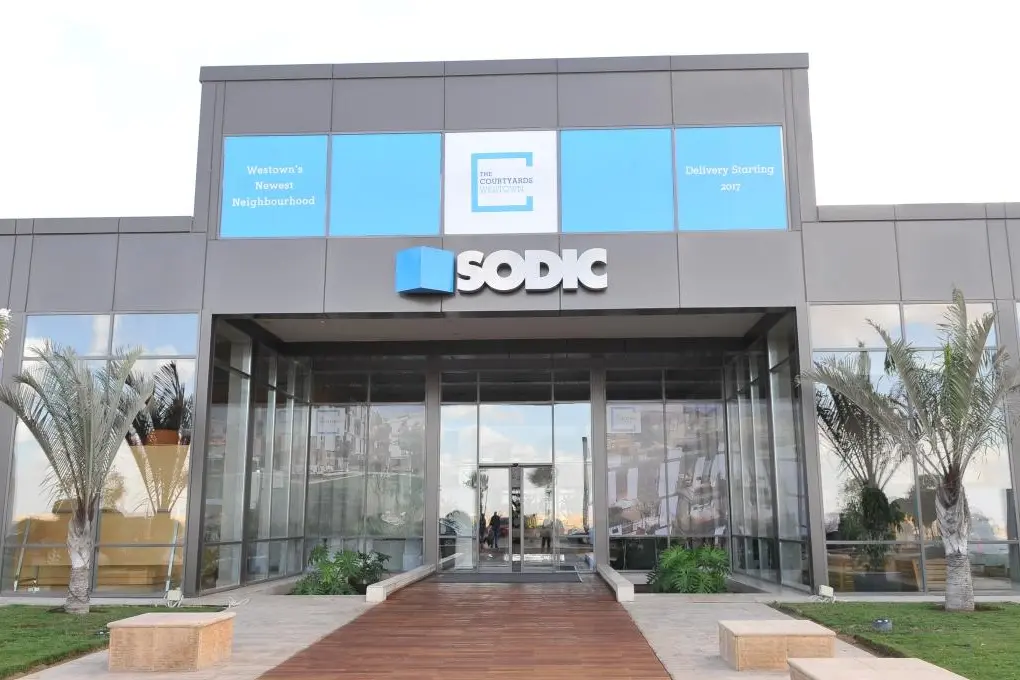PHOTO
Sixth of October Development & Investment Company’s (SODIC) offer to buy at least 51 percent of competitor Madinet Nasr for Housing and Development (MNHD), could create a new powerhouse in Egyptian real estate, according to a senior analyst at Dubai-based investment bank Arqaam Capital.
The offer, which was announced on Sunday, involves a direct share swap at a preliminarily ratio of one SODIC share for every 2 shares held of MNHD. MNHD confirmed in a statement to the bourse on Sunday that it had received the offer, would study it and discuss it at a forthcoming board meeting.
If approved, it could create either the biggest, or second-biggest, player in the market, according to Jaap Meijer, head of research at Arqaam Capital.
“The consolidation of the two companies brings the new entity’s total land bank to (around) 15 million square metres of raw land spread across East and West Cairo and the North Coast,” Meijer told Zawya in an email interview on Monday.
“We think the scope for synergies on both the costs and revenues fronts are massive. The new entity would sit on 35 billion Egyptian pounds ($1.95 billion) in assets, and generate at least 6 billion pounds in revenues. The combined entity can generate anywhere between 15-20 billion pounds in sales per annum, making it the largest or second-largest developer in terms of scale,” he added.
According to Meijer, one of the key elements that attracted SODIC to MNHD is that its land bank is “dispute-free, and has no development timeline, making it a prime asset”.
Founded in 1959, MNHD was established as a public real estate company to develop 40 million square metres of land in Cairo’s Nasr City district, according to the company’s official website. Nasr City is now one of the most populated areas in the Egyptian capital. The company has also been involved in other residential and mixed-use projects.
MNHD is currently owned by several private entities, along with a public real estate company called the Holding Company for Construction and Development, which owns a 15.19 percent stake, according to a disclosure document posted on the Egyptian stock exchange. It has net assets of around 2.45 billion Egyptian pounds, and last year saw its net profit increase by 22 percent to 931.6 million Egyptian pounds.
SODIC has developed several residential, retail, commercial and large scale mixed-use properties in Cairo and the north coast, according to the company’s press release that carried the news. Its consolidated financial statements for 2017 show that its net profit increased by 39 percent year-on-year to 597.1 million Egyptian pounds as revenue increased by 10.6 percent to 2.29 billion Egyptian pounds. It has net assets of 4.38 billion pounds.
Economic growth
Meijer said the offer will further boost the economy of the Arab world’s third biggest economy and the region’s most populous nation. Several years ago, the Egyptian economy was hit hard by a wave of political turmoil that started in 2011 and which drove many investors and tourists away.
But a number of economic reforms enacted over the past three years by the current Egyptian administration have managed to accelerate economic growth. The reforms were backed by the International Monetary Fund (IMF), which approved a three-year, $12 billion loan for Egypt in late 2016. The IMF forecast Egypt’s GDP growth to be 5.2 percent in its most recent fiscal year, which ended in June.
“The growth in Egypt continues… As for the sector, Egyptian home builders largely rely on the phased development of land to deliver growth, and their ability to replenish their land bank is central to their going concern,” Meijer said.
“We also think the Egyptian real estate market is becoming more competitive as we see supply side pressure from smaller developers in the near-term with some risk of handover delays. The merged entity with strong brand equity sitting on a large land bank can arguably withstand a market slowdown more robustly,” he added.
(Reporting by Yasmine Saleh; Editing by Michael Fahy)
(yasmine.saleh@refinitiv.com)
Our Standards: The Thomson Reuters Trust Principles
Disclaimer: This article is provided for informational purposes only. The content does not provide tax, legal or investment advice or opinion regarding the suitability, value or profitability of any particular security, portfolio or investment strategy. Read our full disclaimer policy here.
© ZAWYA 2018





















